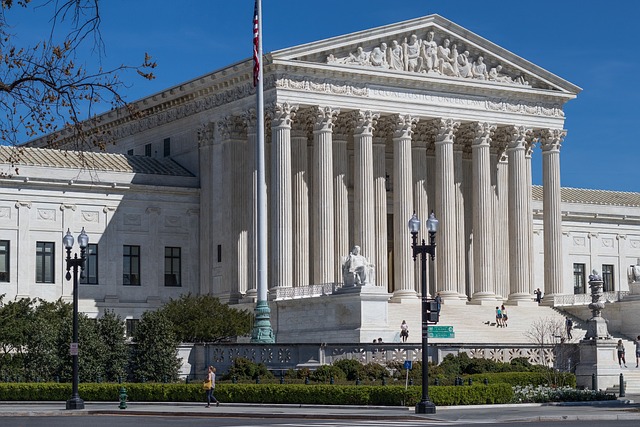Supreme Court takes up religious claim by Rastafarian whose dreadlocks were cut by prison officials
Share
Explore Our Galleries
Breaking News!
Today's news and culture by Black and other reporters in the Black and mainstream media.
Ways to Support ABHM?
By Lawrence Hurley, NBC

WASHINGTON — Taking up a new religious rights case, the Supreme Court agreed Monday to weigh a claim for damages brought by a devout Rastafarian whose dreadlocks were cut by Louisiana prison officials against his wishes.
At the time of the incident in 2020, Damon Landor had kept a religious vow not to cut his hair for almost 20 years.
Landor had served all but three weeks of his five-month sentence for a drug-related conviction in Louisiana when he was transferred to the Raymond Laborde Correction Center.
He was holding a copy of a court ruling that made it clear that practicing Rastafarians should be given a religious accommodation allowing them to keep their dreadlocks.
But a prison officer dismissed his concerns, and Landor was handcuffed to a chair while two officers shaved his head.
Upon his release, Landor filed a lawsuit raising various claims, including the one at issue at the Supreme Court, which he brought under a federal law called the Religious Land Use and Institutionalized Persons Act.
At issue is whether people who sue under the statute can win money damages.
Discover the fight for civil rights, including religious freedom.
Follow stories like this in our breaking news.









Comments Are Welcome
Note: We moderate submissions in order to create a space for meaningful dialogue, a space where museum visitors – adults and youth –– can exchange informed, thoughtful, and relevant comments that add value to our exhibits.
Racial slurs, personal attacks, obscenity, profanity, and SHOUTING do not meet the above standard. Such comments are posted in the exhibit Hateful Speech. Commercial promotions, impersonations, and incoherent comments likewise fail to meet our goals, so will not be posted. Submissions longer than 120 words will be shortened.
See our full Comments Policy here.